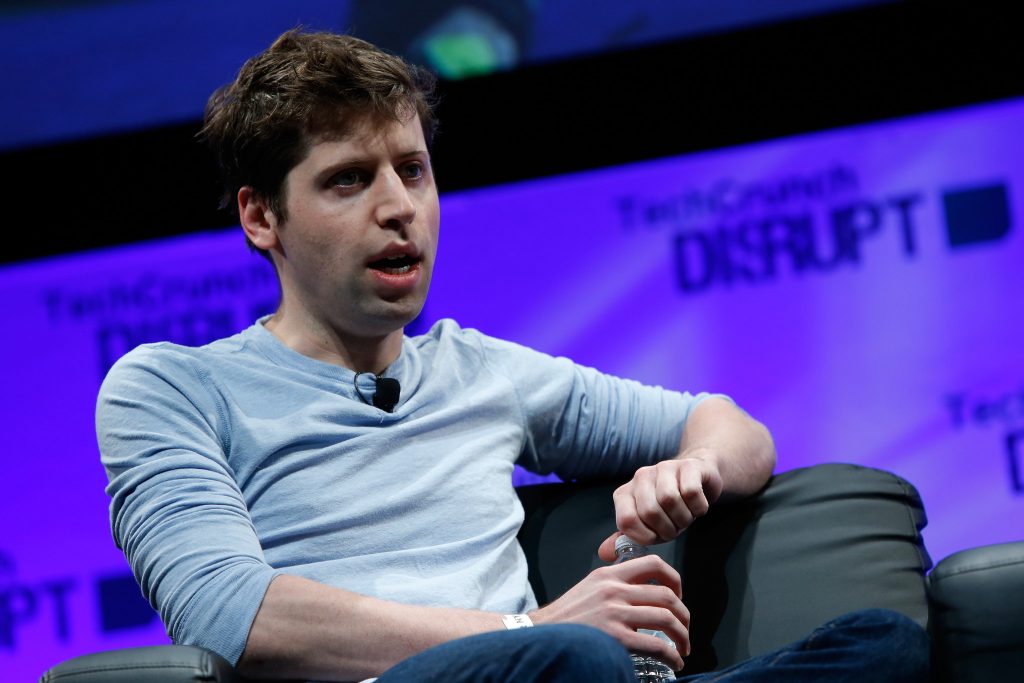
In his role as President of Y Combinator, Sam Altman speaks at TechCrunch Disrupt NY 2014. This week he spoke about OpenAI in front of a Congressional committee. (Source: Brian Ach/Getty Images for TechCrunch/Flickr)
Congress Jumps into Action over Concerns Inflamed by AI Chatbots
While the U.S. probably leads the world with AI development, we can’t be sure. The information China and other nations provide is sorely lacking in honest revelations of their technological advancements. We know how much intellectual information is too often stolen by our adversaries.
But one area the U.S. is really behind in is the oversite of AI in general not to mention the latest generative AI. While Europe and other nations have AI laws pending in the EU and other restrictions in place to protect their user’s privacy the U.S. only has guidelines—no laws on the books.
Now the voices of the top levels of AI companies are being raised in concern about the new AI. NPR.com and other media sources report there is almost a sense of panic with some of the major AI CEOs. They know how powerful this type of AI has become. And they are fearful of how fast it is capable of improving itself.
These companies are usually fighting different congressional committees. Now the situation is reversed.
Please Regulate Us Before Its Too Late
For the past several weeks, Senate Majority Leader Chuck Schumer has met with at least 100 experts in artificial intelligence to craft groundbreaking legislation to install safeguards.
The New York Democrat is in the earliest stages of talking to members of his own party and Republicans to gauge their interest in getting behind a new proposed AI law.
“Our goal is to maximize the good that can come of [artificial intelligence],” Schumer said. “And there can be tremendous good, but minimize the bad that can come of it. … But to do it is more easier said than done.”
It’s all part of a congressional race to try to catch up legislatively to exploding advances in AI.
Congressional hearings of all shapes and sizes are being fired up all over Capitol Hill. The leaders realize just how far behind the 8 ball they are. The window to place regulations or guidelines has pretty much closed in many ways. AI Chatbots have blown past what we thought was regular everyday computer usage.
The list of senators and congressmen who plan hearings is quite long and filled with big players. Leaders Ted Cruz, Josh Hawley, Gary Peters, and Ted Lieu to name a few. There are more.
It appears the voices of hundreds of big tech’s biggest names may have gotten the message through to the politicians.
The urgency is obvious
Law professor Ajunwa, who recently wrote a book on the influence of tech and AI on the modern workplace called The Quantified Worker, worries about AI’s privacy issues. She says key questions are not being asked about the technology’s impact on disadvantaged people, while the focus remains on profits.
“The way the internet developed, unfortunately, is the same way that AI is developing,” she said.
Ajunwa says that with the U.S. already lagging behind the technology — for example, the European Union is already years ahead in regulation efforts — the best bet for regulation may be quicker White House executive actions.
Still, back at the majority leader’s office just off the Senate chamber, Schumer remains undeterred.
“Look, it’s probably the most important issue facing our country, our families and humanity in the next 100 years,” he said. “And how we deal with AI is going to determine the quality of life for this generation and future generations probably more than anything else.”
Sam Altman of OpenAI thinks AI could be as important as the printing press and its effect on our civilizations. Some feel it is already far more important and indeed far more dangerous.
Altman Testifies
The New York Times reported that on Tuesday, Sam Altman, the chief executive of the San Francisco start-up OpenAI, testified before members of a Senate subcommittee and largely agreed with them on the need to regulate the increasingly powerful A.I. technology being created inside his company and others like Google and Microsoft.
In his first testimony before Congress, Mr. Altman implored lawmakers to regulate artificial intelligence as members of the committee displayed a budding understanding of the technology. The hearing underscored the deep unease felt by technologists and the government over A.I.’s potential harms. But that unease did not extend to Mr. Altman, who had a friendly audience among the members of the subcommittee.
Fingers crossed this all works out correctly.
read more at www.npr.org
you might also like www.nytimes.com







Leave A Comment